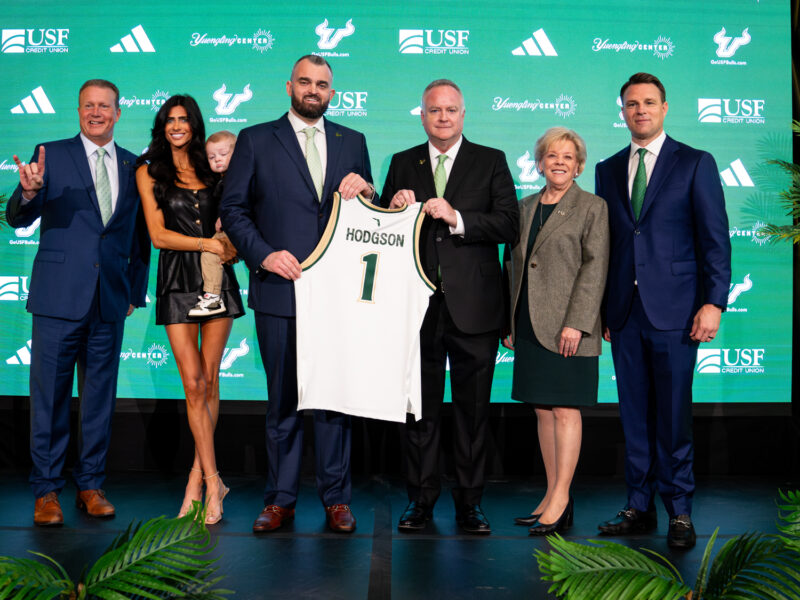Pictured Above: Digital rendering of the future Judy Genshaft Honors College, a building project that was awarded $8.1 by the Florida Legislature.
Courtesy of USF
By Isaiah Sterling
For months, USF cut spending and braced for more as the COVID-19 pandemic sent revenues into a deeply downward spiral.
But the proposed state budget that was approved by the Legislature on April 30 and sent to Gov. Ron DeSantis reverses nearly all of the cuts to the university’s operating funds this year and the fiscal year that begins July 1.
In a letter to the USF community on May 4, President Steve Currall expressed gratitude to “our partners in the Legislature” for avoiding the “draconian reductions” that the state’s public universities had long feared.
Currall did not mention the two developments that made the dramatic change possible.
First, as the state’s economy has begun to rebound, sales tax revenue has surged.
Second, Florida is receiving $10.2 million under the American Rescue Plan, the federal pandemic stimulus program proposed by President Joe Biden and approved by Congress in March.
All that windfall money enabled legislators to approve a record $101.5 billion budget that is full of appropriations like $8.1 million to help construct a building for the Judy Genshaft Honors College on the Tampa campus and $350 million for deferred maintenance at state facilities and $46 million for capital improvement projects at the state’s public universities.
The proposed budget now awaits final approval from DeSantis, who can veto some of the proposed spending.
Just a few months ago, the budget picture for USF and other public universities was bleak.
Last summer, 6 percent of the universities’ state budgets were “preemptively held back by the state,” Currall said, and the schools were ordered to prepare for an 8.5 percent cut in the 2021-2022 fiscal year, which begins July 1.
Although the state budget picture is now much better than the university administration anticipated, Currall said USF still faces financial challenges that require continued fiscal responsibility and careful planning.”
The “full impacts” of COVID-19 on university operations are still unknown, Currall said, and the administration is still planning for what it calls a “strategic realignment” of programs and spending beginning in 2022-2023.
USF faculty leaders have hotly denounced strategic realignment as a vague, hasty, secretive process that ignores faculty input.



